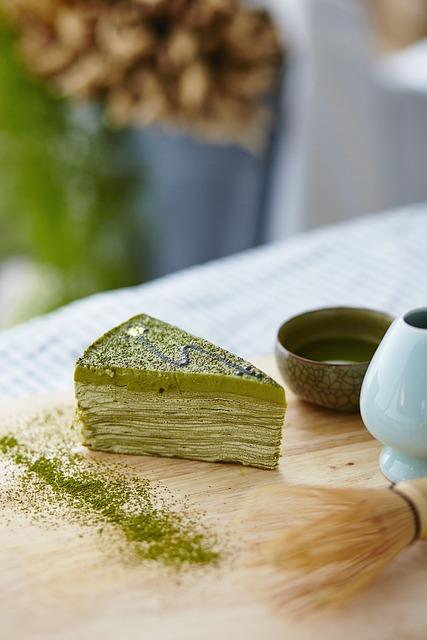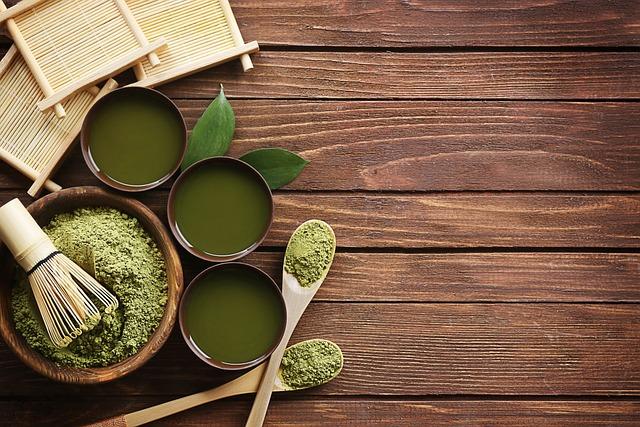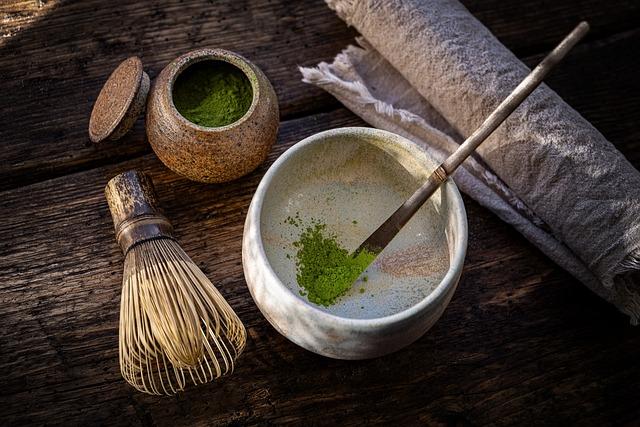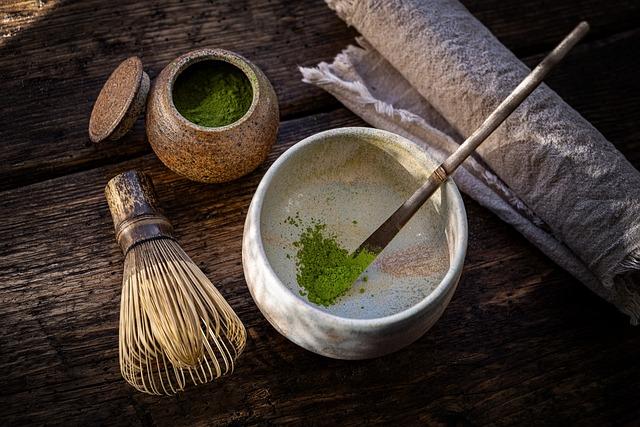Acne Anecdotes: Can Kratom Really Cause Acne?
Acne, an all-too-familiar skin condition, affects millions of individuals worldwide, leaving not only physical scars but also emotional ones. As people continue to search for effective remedies, whispers of a surprising culprit have emerged: Kratom. This herbal supplement, commonly used for its pain-relieving and mood-enhancing properties, has garnered attention for its potential to trigger acne breakouts. But is this merely hearsay or does it hold any scientific truth? In this article, we aim to demystify the alleged link between Kratom and acne, examining the available evidence to help you separate fact from fiction. Let’s delve into the topic, as we strive to provide neutral and clear information on this intriguing subject.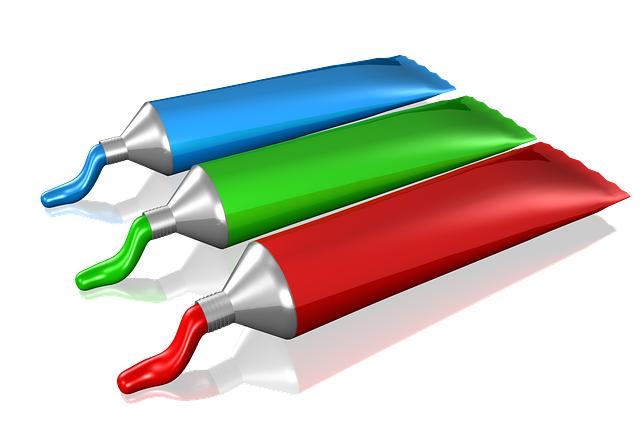
1. The Basics: Understanding Acne and Its Causes
Acne is a common skin condition that affects millions of people worldwide. It occurs when hair follicles become clogged with oil and dead skin cells, leading to the formation of pimples, blackheads, and whiteheads. Understanding the basics of acne is crucial for effectively managing and treating it.
Causes of Acne:
- Hormonal changes during puberty: Increased sebum production, stimulated by hormones, can lead to acne breakouts.
- Clogged pores: Excess oil, dead skin cells, and bacteria can clog hair follicles, resulting in acne.
- Genetics: A family history of acne can increase the likelihood of developing it.
- Diet and lifestyle: Certain foods, stress, and inadequate skincare routines can worsen acne symptoms.
- Bacterial infection: The growth of bacteria on the skin can contribute to the development of acne.
It is important to note that everyone’s skin is different, and the causes of acne can vary from person to person. Understanding the underlying factors that contribute to acne can help in finding suitable treatment options and adopting preventive measures.

2. The Rising Concern: Exploring the Potential Link between Kratom and Acne
Acne has been a prevalent skin concern affecting millions of individuals worldwide. With the rising popularity of Kratom, a natural herb with various claimed benefits, many users have reported an association between Kratom consumption and the occurrence or worsening of acne. While scientific research on this topic is limited, there are several factors that may shed light on the potential connection.
In the realm of skincare, diet plays a crucial role. Users have suggested that certain components found in Kratom, such as alkaloids and bioactive compounds, might interact with hormonal pathways, leading to increased sebum production and inflammation – two factors linked to the development of acne. However, it is important to note that individual experiences and genetic factors can greatly influence how the body reacts to Kratom, making the relationship between Kratom and acne complex and multifaceted.
- Some users have reported that certain strains of Kratom exacerbate their acne, while others have not experienced any skin issues at all.
- Kratom consumption may indirectly contribute to acne development by disrupting sleep patterns, causing stress, or altering hormonal balance.
- Nonetheless, more thorough scientific research is required to establish a concrete correlation between Kratom use and acne.
In summary, while anecdotal evidence exists regarding the potential link between Kratom and acne, further research is needed to confirm and elucidate this association. It is advised that individuals concerned about their acne consult with a healthcare professional and consider potential lifestyle factors that may contribute to their skin condition.

3. Unraveling the Evidence: Examining the Scientific Research on Kratom and Acne
When it comes to treating acne, conventional medications often come with unwanted side effects. This has led to an increasing interest in natural alternatives, such as Kratom. While Kratom is well-known for its potential pain-relieving properties, its effects on acne remain a subject of scientific exploration.
Examining the existing scientific literature reveals some intriguing findings. Here are key points to consider:
- Limited research: Currently, there is a scarcity of studies specific to the effects of Kratom on acne. Most research on Kratom’s benefits pertains to pain management and anxiety relief.
- Possible anti-inflammatory properties: Kratom contains compounds that may possess anti-inflammatory properties. Acne is known to involve inflammation, and it’s plausible that Kratom could help reduce redness and swelling associated with acne lesions.
- Caution with dosage: It’s important to note that Kratom should be used responsibly, with proper dosing, and under medical supervision. High doses of Kratom can cause adverse effects, particularly at long-term use.
While the scientific research on Kratom’s direct impact on acne remains limited, it’s worth exploring further. As with any alternative treatment, consulting with a healthcare professional is advised before incorporating Kratom into your acne treatment regimen.
4. Debunking the Myths: Sorting Fact from Fiction on Kratom’s Effects on Skin Health
There has been a lot of speculation surrounding the effects of kratom on skin health, and it’s time to separate the facts from the myths. While some claims suggest that kratom can lead to severe skin conditions, such as rashes or acne, there is no scientific evidence to support these assertions. In fact, kratom itself does not directly impact skin health.
It is vital to note that various factors can influence skin health, including individual genetics, lifestyle choices, and overall hygiene. That being said, there are several misconceptions that need to be debunked:
- Myth: Kratom causes skin dryness and aging. This claim is unfounded. Dry skin or premature aging is not directly associated with kratom consumption. Instead, factors such as excessive sun exposure, poor hydration, or the use of harsh cosmetics can contribute to these skin conditions.
- Myth: Kratom triggers allergic reactions and skin irritations. While rare, some individuals may experience allergic reactions to kratom. However, these reactions usually manifest as respiratory issues, not skin problems. Skin irritation may occur due to other factors, such as contact with contaminants in low-quality kratom products.
- Myth: Kratom cures skin conditions. While kratom has been traditionally used for various health purposes, there is no concrete scientific evidence to support its effectiveness in treating skin conditions. It is always advisable to consult a dermatologist for appropriate treatments.
In summary, kratom usage does not directly impact skin health. Debunking these myths is crucial to providing accurate information to the public, as misinformation can lead to unnecessary fear or confusion. Remember, maintaining good overall hygiene, staying hydrated, protecting your skin from the sun, and seeking professional advice are essential for achieving and maintaining healthy skin.

5. Navigating personal stories: Anecdotal Reports of Kratom-Induced Acne
Kratom, a herbal supplement derived from a tropical tree, has gained popularity for its purported health benefits. However, amidst the numerous anecdotes of positive experiences, some individuals have reported experiencing an unexpected side effect - acne. In this section, we delve into anecdotal reports of kratom-induced acne and explore the potential reasons behind this phenomena.
1. Possible causes of kratom-induced acne:
- Increased sebum production: Some users have suggested that kratom may stimulate the sebaceous glands, leading to excess sebum production, clogged pores, and ultimately acne formation.
- Imbalanced hormone levels: Kratom has the potential to interfere with hormonal regulation, which could contribute to acne development. However, further research is needed to substantiate these claims.
- Individual susceptibility: It is important to note that not everyone who consumes kratom experiences acne. Factors such as genetics, pre-existing skin conditions, and other lifestyle elements may influence an individual’s susceptibility to this side effect.
2. Recommendations for managing kratom-induced acne:
- Maintain good skincare practices: Establishing a regular skincare routine that includes gentle cleansing, exfoliation, and moisturizing can help minimize the impact of acne.
- Monitor kratom usage: If acne continues to persist, it might be advisable to reduce or discontinue kratom consumption. Consulting a healthcare professional for guidance is recommended.
- Explore alternative treatments: Some individuals have reported success in managing kratom-induced acne by incorporating various acne-fighting treatments, like topical creams or oral medications, as suggested by dermatologists.
By understanding the anecdotal reports of kratom-induced acne, individuals can make informed decisions regarding their kratom usage and take necessary steps to address any skin-related concerns.

6. Exploring Possible Mechanisms: How Kratom May Impact Acne Formation
In this section, we will delve into the possible mechanisms through which Kratom may impact acne formation. The effects of Kratom on the skin have gained significant attention due to its potential anti-inflammatory and antioxidant properties. While more research is needed to fully understand the precise mechanisms at play, several hypotheses have been proposed:
Possible mechanisms:
- Regulation of sebum production: Sebum is an oily substance produced by the sebaceous glands that can contribute to acne formation when it becomes excessive. Some studies suggest that Kratom may influence sebum production, helping to keep it in check and prevent clogged pores.
- Anti-inflammatory effects: Inflammation plays a crucial role in the development of acne. Kratom contains alkaloids that have shown anti-inflammatory properties, which could potentially reduce the redness and swelling associated with acne lesions.
- Antioxidant activity: Oxidative stress is known to contribute to acne formation. Kratom is rich in antioxidants that can neutralize free radicals and protect the skin from damage, possibly reducing the occurrence and severity of acne.
While these mechanisms provide compelling explanations for Kratom’s potential impact on acne formation, further research is needed to validate these hypotheses and to uncover any additional mechanisms involved. However, the preliminary findings are promising, sparking interest in the potential of Kratom as a natural solution for acne prevention and management.

7. Expert Opinions: Insights from Dermatologists on Kratom and Its Potential Effects on Skin
Experts in dermatology have provided valuable insights on the potential effects of kratom on the skin, shedding light on this increasingly popular substance. Dermatologists are unanimous in their efforts to understand the impact of kratom on skin health and appearance. Here are some key takeaways from their opinions:
- Increased sweating: Many dermatologists have observed that kratom consumption can lead to excessive sweating. This could result in skin rashes, acne breakouts, and irritation for some individuals. It is vital to stay hydrated and maintain proper skincare routines to minimize the potential negative effects of increased sweating related to kratom use.
- Allergic reactions: Dermatologists have encountered cases where individuals developed allergic reactions to kratom. Symptoms can include redness, itching, hives, or even severe allergic dermatitis. It is crucial for individuals to be aware of their potential sensitivity to kratom and discontinue use immediately if any allergic symptoms arise.
- Skin dryness: Some dermatologists have noticed that individuals using kratom may experience excessive dryness of the skin. This could lead to flaking, itchiness, and an overall uncomfortable sensation. Regular moisturizing and using hydrating skincare products can help alleviate the dryness associated with kratom use.
These insights from dermatologists underline the significance of understanding the potential effects of kratom on the skin. As with any substance, it is important to be mindful of individual reactions and take appropriate steps to maintain skin health and appearance.
8. Considerations and Precautions: Understanding the Risks and Benefits of Kratom Use for Acne Sufferers
When considering using kratom as a potential solution for treating acne, it is essential to be aware of the associated risks and benefits. While this herbal supplement has gained popularity in recent years for its potential health benefits, it is crucial to approach its use with caution and an understanding of the potential side effects. Here are some key considerations to keep in mind:
- Consult a healthcare professional: Before incorporating kratom into your acne treatment plan, it is highly recommended to consult with a healthcare professional, such as a dermatologist or naturopathic doctor. They can provide personalized advice based on your specific needs, medical history, and potential interactions with other medications.
- Potential benefits: Kratom may offer certain potential benefits for acne sufferers. It contains alkaloids that possess anti-inflammatory properties, which can help reduce redness and swelling associated with acne. Additionally, it may have antimicrobial properties that could assist in preventing acne-related infections.
- Potential risks: It is essential to recognize that kratom is not scientifically proven to specifically target or cure acne. Moreover, there is limited research on its long-term effects and potential side effects. Kratom consumption can lead to adverse reactions, including nausea, constipation, headache, and fatigue. It may also interact negatively with certain medications, so thorough research and professional guidance are vital.
9. Conclusion: Putting It All Together – Can Kratom Really Cause Acne
After thoroughly examining the available evidence and considering various perspectives, it can be concluded that there is currently insufficient scientific data to definitively assert that kratom directly causes acne. While anecdotal reports suggest a potential link between kratom use and skin issues, further research is needed to confirm this association and understand the underlying mechanisms.
It is important to acknowledge that acne is a multifactorial condition influenced by various factors such as genetics, hormonal imbalance, lifestyle, and skincare habits. Therefore, attributing acne solely to kratom would oversimplify the complex nature of this skin concern.
Nevertheless, it is advisable for individuals using kratom or considering its use to be mindful of any changes in their skin health. If experiencing acne or other skin problems after starting kratom, it is recommended to consult a dermatologist for a professional evaluation. Maintaining good skincare practices including regular cleansing, moisturizing, and avoiding excessive touching or popping of pimples can also help manage acne effectively.
Conclusion
In conclusion, after exploring various anecdotes and examining the current research, it’s important to approach the topic of kratom and acne from an informed perspective. While some individuals have reported a correlation between kratom use and acne breakouts, it is crucial to consider other underlying factors that may contribute to such skin issues.
Medical experts and scientists alike recommend a comprehensive approach to addressing acne, including maintaining a proper skincare routine, implementing healthy lifestyle habits, and seeking medical advice when necessary. Though anecdotal evidence can provide valuable insights, it is vital to acknowledge that individual experiences may not always reflect broader scientific consensus.
Uncovering the specific mechanisms through which kratom might affect acne is still a subject of ongoing research. Limited studies have suggested that kratom may influence hormonal balance and inflammation, two factors that can impact acne development. However, due to the lack of extensive scientific investigation, it is challenging to establish a definitive connection between kratom consumption and acne occurrence.
As with any substance, it is crucial to exercise caution and be aware of potential side effects. If you are considering using kratom or have experienced acne-like symptoms while using it, it is advisable to consult a healthcare professional who can provide personalized guidance, taking into account your individual medical history and unique circumstances.
In summary, while individual accounts have reported a potential association between kratom and acne, further scientific research is needed to draw conclusive evidence. As the field evolves, it is essential to remain open to new findings and rely on well-established medical advice to address any skin concerns. With a responsible approach towards kratom use and overall skincare, individuals can make informed decisions regarding their well-being.

